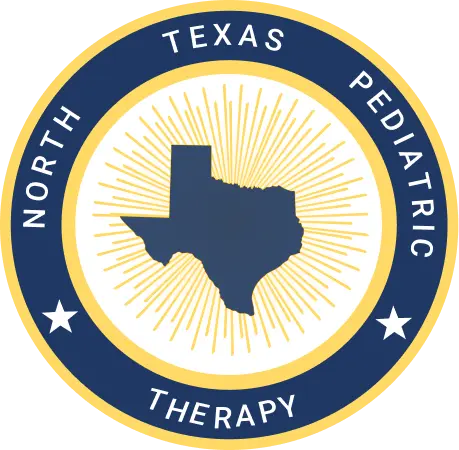In a child’s journey of growth, communication skills are key. While some kids breeze through, others face hurdles along the way. Enter pediatric speech therapy – a fantastic tool to help kids overcome speech and language challenges.
Speech therapy plays a vital role in tackling speech and language issues, boosting communication, and supporting overall health. Therapists use targeted techniques to improve articulation, phonological skills, fluency, and language understanding. This not only builds confidence but also enhances social skills and academic performance.
With early intervention and personalized support, speech therapy empowers kids to break down communication barriers and thrive in all aspects of life, such as North Texas Pediatric Therapy
North Texas Pediatric Therapy provides tailored services for those children who want Speech Therapy in North Dallas.
Let’s find out the importance of pediatric speech therapy in more detail!
Purpose of Speech Therapy
Speech therapy aims to help individuals improve their communication skills and overcome speech and language difficulties. The main purpose is to assist people in expressing themselves more clearly and effectively. Speech therapists work with individuals who have trouble speaking, understanding language, or pronouncing words correctly. They use various techniques and exercises tailored to each person’s specific needs to help them communicate better. Whether it’s improving articulation, enhancing language comprehension, or addressing stuttering, the goal is to empower individuals to communicate confidently in all aspects of their lives.
Why is Speech Therapy Important?
Pediatric speech therapy is more than just working with kids to treat their speech and language impairments—it’s about unlocking their full potential. Here’s how:
- Mission:
The mission of pediatric speech therapy is twofold:
- Improve communication skills
- Develop language abilities
- Boost socialization
- Approach:
Speech therapists tailor each session and activity to address the child’s unique communication challenges and understanding abilities.
- Significance:
Pediatric speech therapy is essential for:
- Building self-esteem
- Enhancing intellectual abilities
- Improving overall quality of life for children and their families
- Early Intervention:
Early intervention is key to:
- Preventing future communication problems
- Addressing ongoing speech and language disorders
- Ensuring successful outcomes in the future
- Personalized Care:
Unlike adult speech therapy, pediatric speech therapy offers personalized approaches based on each child’s strengths, challenges, and interests. This individualized care creates an engaging and effective learning environment.
- Cornerstone of Growth:
Pediatric speech therapy serves as the cornerstone for children to:
- Remodel their communication systems
- Attain their full capabilities in all-rounded growth
- Impact:
The influence of pediatric speech therapy extends beyond language and speech, enriching lives and fostering healthier communication avenues for all members of society.

Common Speech Disorders in Children
Different kinds of speech disorders may be challenging to children because each has its features.
Here are some common types of speech disorders in children:
- Articulation disorders
- Phonological disorders
- Stuttering
- Language delays
Different cases of speech disorders include easier ones, such as articulation and phonological disorders, stuttering, and language delays. In some cases, these disorders can severely affect a child’s learning progress, the student’s ability to socialize with classmates, and the child’s sense of self-worth.
While faced with the challenge of identifying and dealing with childhood communication disorders, which vary from signs of autism to language barriers, child speech therapists develop personalized treatment plans for a successful intervention. Trained therapists can target some areas of children’s needs. Then, the children can move on to actualize their potential.
Importance of Early Intervention
Research consistently underscores the benefits of speech therapy, emphasizing that early intervention in children’s lives yields the most significant advantages. Speech therapy for children uses early intervention as the base of their work. Awareness of issues and support tactics for children to prevent them during early life helps children develop their language skills and face the complexity of life. There are numerous advantages of speech therapy to individuals.
Parents have a pivotal role in recognizing the communicative disorder and getting help in time for intervention. With guidance from the speech therapist, they can overcome obsessions and widen their horizons, thus being supported.

Overcoming Challenges in Speech Therapy
Starting with a patient and persistent approach — While childhood speech therapy can be challenging, it’s important to remain patient and persistent. Collaborating with therapists and adopting a supportive attitude can help mitigate any feelings of irritation or low pace during the process.
Varied Progress Rates
Progress in speech therapy varies from child to child. Some may show quick results, while others require more time and repetition. Managing expectations and celebrating minor improvements along the way is essential.
Generalization of Skills
One potential challenge is children’s difficulty applying skills learned in therapy sessions to real-life situations. Speech-language pathologists work closely with parents and caregivers to ensure effective carryover of skills beyond therapy sessions.
Addressing Underlying Issues
Speech and language problems may stem from various underlying issues, such as sensory processing difficulties or co-occurring conditions like autism spectrum disorder. A multidisciplinary approach involving collaboration with other professionals is crucial for comprehensive care.
Stigma Surrounding Speech Disorders
Parents may experience feelings of guilt or embarrassment due to the societal stigma surrounding speech disorders. Therapists play a vital role in creating a supportive and judgment-free environment for families, encouraging open communication, and reducing misinformation.
Check out What is Open Communication? (With Benefits and Importance)

Final Say
We can not deny the importance of pediatric speech therapy providing hope for children going down the tough road of communication barriers. Involving personalized interventions, early intervention, and cooperative initiatives, pediatric speech therapy connects past to future, granting kids the strength needed for effective Communication.
Every time we put our children first and invest in their communication skills, we create the path for a brighter, inclusive, united future. The commitment of speech therapists, family involvement, and community collaboration work together to make the bridge across. We help people learn to communicate with one child at a time.
Ready to begin this transformative journey? If you are looking for North Dallas Speech Therapy programs, contact North Texas Pediatric Therapy today and unlock your child’s full potential in communication!


